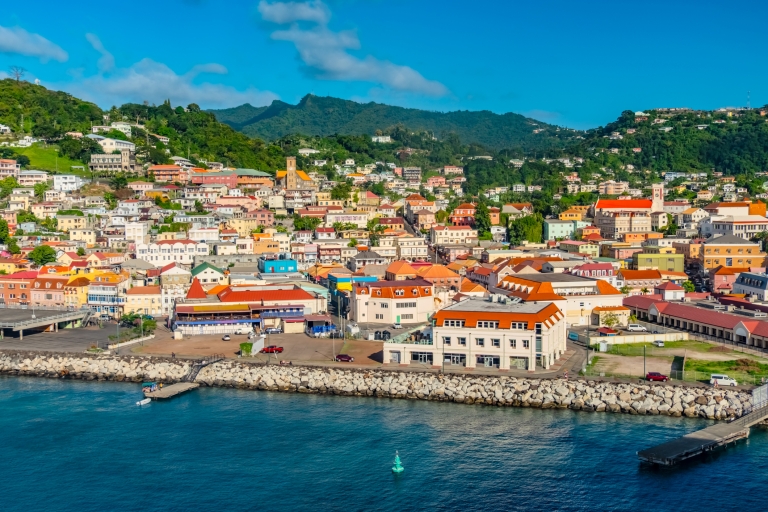Expanding into Nicaragua presents unique opportunities for businesses looking to tap into Central America's dynamic labor market. But hiring talent across borders comes with legal complexities-especially when it comes to securing work authorization. This guide outlines how global employers can obtain work visas in Nicaragua for foreign employees, streamline compliance, and focus on growth.
Understanding the importance of work visas and authorizations
Hiring foreign talent in Nicaragua requires more than a job offer. Employers must secure the proper work visa and authorization before an employee begins work. These documents legally permit foreign nationals to reside and work in the country, and they are critical to avoid fines, deportation, or reputational risk.
Work authorization also provides legal protections for employees and ensures their access to social security, healthcare, and fair labor rights under Nicaraguan law.
Overview of the Nicaraguan immigration system for employers
Nicaragua's immigration system is governed by the General Law on Migration and Foreigners (Law No. 761), which outlines visa categories and employment eligibility for foreign nationals. Employers must coordinate with the Nicaraguan Ministry of the Interior and the General Directorate of Migration and Foreign Affairs.
Employers are expected to sponsor foreign hires and manage their visa process, from initial application through ongoing compliance.
Requirements for a work visa in Nicaragua
Eligible applicants and their employers
In Nicaragua, most foreign nationals require a work visa if they intend to remain in the country longer than 90 days. Eligible applicants include professionals with job offers from a Nicaragua-based company. The employer must demonstrate the job cannot be filled locally and show the foreign worker meets job-specific qualifications.
Necessary documentation and applications
Employers and applicants typically need to provide:
- A valid passport with at least six months of validity
- A formal job offer letter or employment contract
- Proof of the employer's legal registration in Nicaragua
- Background checks and health certificates
- Academic or professional qualifications
Documentation must be submitted in Spanish and often requires notarization or apostilles.
How to apply: Step-by-step guide
- Submit a work visa application to the General Directorate of Migration and Foreign Affairs.
- Provide supporting documents, including the employment contract and applicant's personal documentation.
- Await initial approval, which may involve an interview or additional verification.
- Once approved, applicant may enter the country and register with local authorities.
Types of work visas in Nicaragua
Short-term vs. long-term work visas
Short-term work visas are typically valid for up to 90 days and are appropriate for consulting engagements, training, or project-based work. Long-term visas apply to contracts exceeding 90 days and may be renewed annually.
Temporary Protected Status
While Nicaragua does not offer Temporary Protected Status (TPS) in the way the United States does, regional agreements such as the Central American Integration System (SICA) may allow for certain temporary stays on humanitarian grounds. Employers should consult official government channels for updates on applicable programs.
Long-term residency and citizenship options
After legally residing in Nicaragua for at least five years, foreign nationals may apply for permanent residency. Citizenship becomes an option after two additional years of permanent residence, provided the applicant renounces previous citizenship unless exempted.
Nicaragua visa application process
Registering your appointment online
Applicants must begin by booking an appointment through the Nicaraguan immigration portal. A confirmation email will detail which documents to bring and next steps.
In-person requirements in Managua
All applicants must appear in person at the immigration office in Managua. The appointment typically includes a biometric scan, interview, and submission of original documents.
Common pitfalls and how to avoid them
Delays often occur due to incomplete documentation or missing apostilles. Employers should review checklists carefully and use a local legal expert if possible. Language barriers and outdated forms can also slow down the process.
Cost and processing times for Nicaraguan visas
Visa fees can vary depending on nationality and visa type, but in general include:
- Application filing. US$50-$100
- Work permit issuance. US$150-$250
- Renewal fees. Vary by contract and permit duration
Processing typically takes four to eight weeks. Factors that influence this timeline include the completeness of documentation, applicant background checks, and local office capacity. During peak times, such as seasonal labor influxes, delays are common.
Employer responsibilities and considerations
Ensuring compliance with Nicaraguan immigration laws
Employers must ensure foreign employees hold valid permits and visas throughout their stay. Non-compliance can lead to fines, work stoppages, or employee deportation.
Maintaining valid employee documentation and renewals
Ongoing compliance includes tracking expiration dates and managing timely renewals. Employers should maintain a secure record-keeping system and designate a compliance officer or partner to manage immigration matters.
Tips and resources for a successful application
Thorough preparation is key. Employers should:
- Ensure all documentation is complete, correctly translated, and legally certified
- Engage with local immigration experts to navigate complex regulations
- Monitor deadlines to avoid lapses in authorization
Utilizing an Employer of Record (EOR) provider
To ease administrative burden, many companies partner with an Employer of Record (EOR), which allows businesses to scale quickly in Nicaragua without establishing a local entity. An EOR acts as the legal employer on behalf of a company, handling everything from hiring, onboarding, payroll, and-critically-visa sponsorship. This service reduces legal exposure and ensures compliance with Nicaraguan labor laws, allowing businesses to focus on growth rather than red tape.
How Velocity Global can help
Velocity Global simplifies international hiring with our comprehensive Employer of Record (EOR) solution, making it easier for companies to tap into Nicaragua's talent market without setting up a local entity. From navigating Nicaraguan visa regulations to managing compliance and payroll, Velocity Global provides end-to-end support for global teams.
With a presence in over 185 countries, Velocity Global helps businesses go global without borders-quickly, compliantly, and with confidence.
This information does not, and is not intended to, constitute legal or tax advice and is for general informational purposes only. The intent of this document is solely to provide general and preliminary information for private use. Do not rely on it as an alternative to legal, financial, taxation, or accountancy advice from an appropriately qualified professional. The content in this guide is provided "as is," and no representations are made that the content is error-free.
© 2025 Velocity Global, LLC. All rights reserved.
Topic:
Immigration + Relocation



